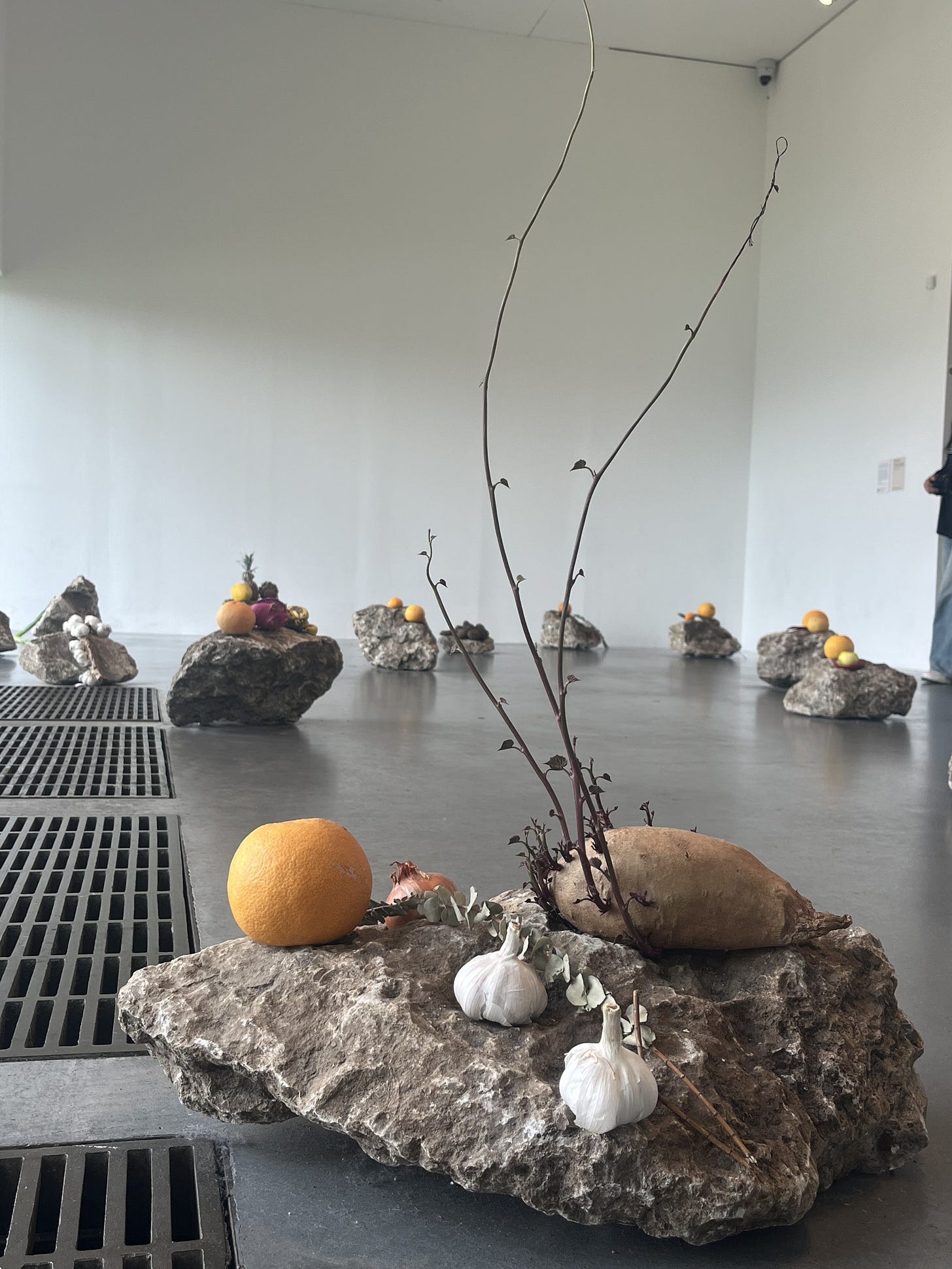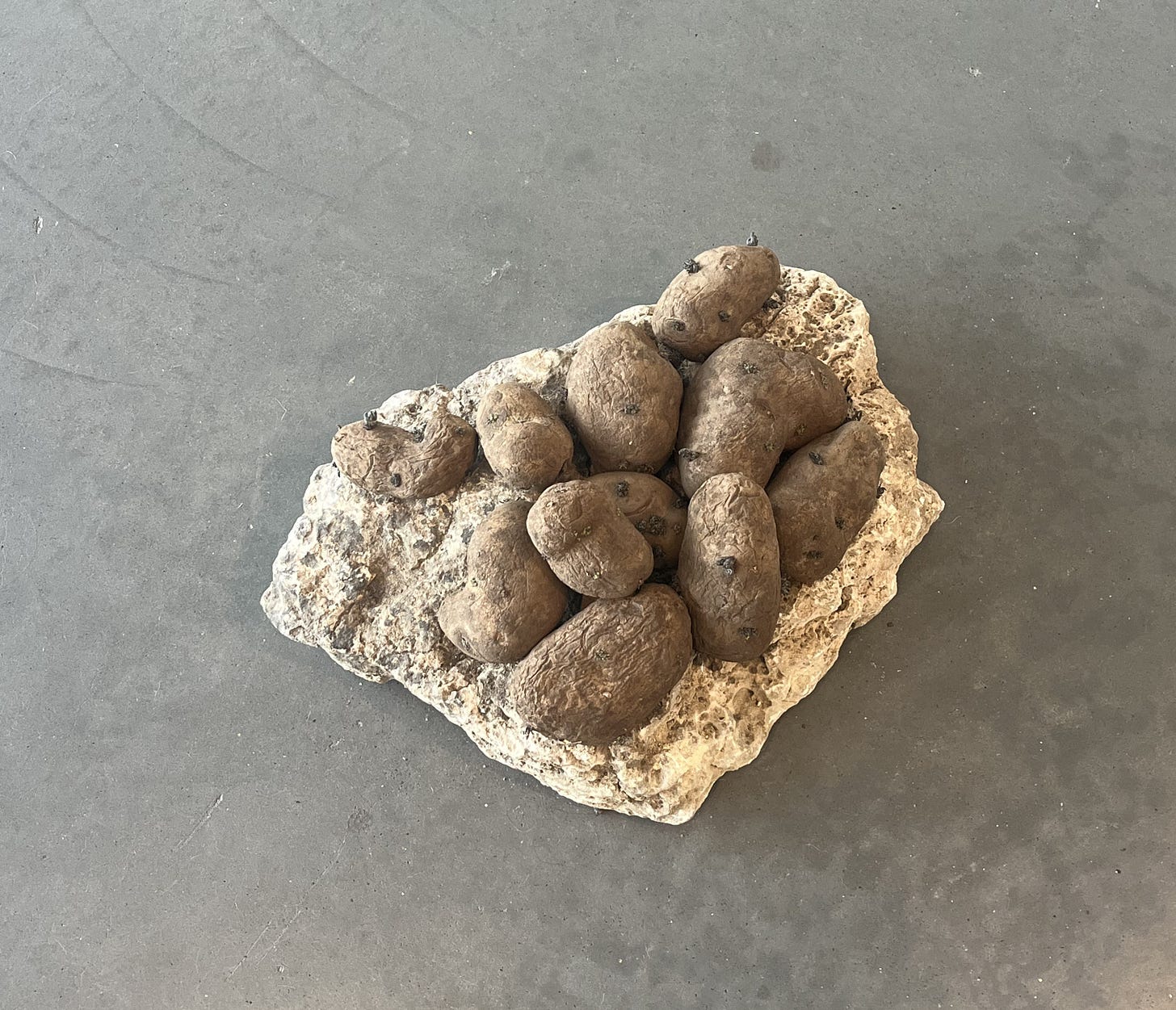My heart felt especially tender the other day, meandering alone along London streets. It was very hot, and my bag heavy, the bulging tote taut with indecision for where the day would take me: full Nalgene, personal journal, writing notebook, regular book, wallet, hairbrush, sweater. Too much.
I shifted the weight of it on my shoulder, catching my reflection in a storefront window. Tired, a bit disheveled. My body looking stronger from months of farming, and softer from months of buttered bread. I felt a gentle frown weigh down my face as my eyes scanned over and critiqued the murky image. I judged what I saw, then judged myself for judging. The second arrow, a teacher once explained.
But sometimes it’s hard to shake these layers of angst that heatwaves unearth, I justify to myself. Maybe it’s the stale air and the sweaty shoulders of strangers. Or the rank smell of sun-baked urine and trash juice on sad, treeless streets. Or the obscurity of humans hustling toward something despite this clear call to slow down. Despite relentless texts and notifications informing us of all that’s horrible. Which in the heat, can feel like everything.
I turned into the Tate, dodging past my fellow tourists checking the museum off their list. The soft lighting inside was disarming, and I could feel my body start to relax as I walked from exhibit to exhibit, each piece lulling me back to life. But then, a needless, impulsive look at my phone. “I hate this timeline,” I see on the screen, in a text from a friend. My hands tense and my chest tightens, as I forge ahead into the next room.
One wall was entirely windows, looking out onto the River Thames, and the rest were bare white. On the floor were a dozen large rocks, spaced out, each with a pile of real fruit and vegetables stacked on top. The smell was sweet, dark, soothing.
I walked toward one of the shrines: a ruddy yam with slips shooting up, an orange fuzzy and malleable, a sturdy white onion with papery skin, a brittle stem of eucalyptus. All perched on jagged, ancient rock. Without thought, I laid down my bag, slowly crouching into a squat. Waiting to see the magic.
Visitors entered the space alone or in pairs, often bypassing the display below to take photos of the Thames, but sometimes pausing to look down. In the meantime, the bounty on the floor continued its slow, infinitesimal deterioration.
I stayed there, pondering each pile and studying the faces of passersby. And soon enough, the barriers between us—humans, saggy apples, hardened corn, hulking rock—felt harder to distinguish. The whole room in varying stages of decay.
I caught my reflection again in the windowed wall. The subtle rise and fall of my chest, the smile lines on my face, the curve of my achy knees. There too, a precious, aging, changing, dying form, but one still very much alive. There too, a being afforded, each moment, the chance to birth something good, something new, into this never-ending, always-ending timeline.
Where we are on that timeline, of course, is a matter of perspective. Or perhaps, a matter of comforting contradiction: the seed in the soil, the fleshy fruit, the punctured skin, the composting matter, the rock beneath. Both, one, and, all, each, always, eventually.
To love the whole of it is to see our true selves within the context of this life, and learn to cherish the discomfort of change. To love the whole of it is to accept the only known thing: that our individual and collective worlds are always dying, always re-forming. There is change, there is relief, on the other side. If we can sit with and through the slow decay.
I took a deep breath through the nose, cherishing my controlled exhale, and left the room. Back out on muggy streets, I watched as scores of complicated, selfish, loving, lost, and completely wonderful strangers flowed in different directions. A petri dish teeming with life, movement, potential.
This sight worth beholding as much as any other. Getting still, I smiled, bowing to the big picture.
reverence
in which I share a quote, prayer, or meditation.
The five remembrances, from the Upajjhatthana Sutta. Recite to the self often, as needed, and see what it can release and inspire in you.
I am of the nature to age.
I am of the nature to become ill.
I am of the nature to die.
I will be separated and parted from all that is dear to me.
I am the heir to my actions.
devotion
in which I share lifestyle suggestions to better honor this earth.
In denying our own mortality, and that of other beings, we contribute to and justify ongoing cycles of violence.
When you’re ready, I invite you to sit in front of a mirror and really study your lovely, fleeting form, maybe even offering thanks to it. This can be a short meditation, but often, it’s one that takes time to ease into.
Then perhaps you can go out to a park bench, or on a walk. Observe the nimble runners, the elderly on walkers, the children playing, the swaying shrubs, the darting birds. Each very alive, and each completely mortal. Allow a soft smile to spread across your face, close your eyes, deep inhale, long exhale. Offering gratitude for what’s fleeting.
the craic
now listening: the recent episode of Dissect, centered on the magnum opus of Kendrick’s Mr. Morale and the Big Steppers, “Mother I Sober.”
now preaching: about how unimpressed I am by American overconsumption culture—loving the people, hating the behavior :)
thank you // go raibh maith agat
Each of us comes from a culture or lineage rooted in reverence for the earth, proven through our collective ancestors’ lifestyles, ceremonies, and world views. For many, that divine connection to the land was severed—by force, by choice, by both.
Confronting and mitigating the climate crisis will depend on a great remembering of that connection, and a reestablishment of traditions, practices, and spiritualities we can employ to honor it. I appreciate you working to remember.
PS: 🎶 Here’s my ongoing “dark peace” playlist. Enjoy!








Sheila,
This is a beautiful piece. I've been thinking a lot about this seeming contradiction of decay and new life lately and am grateful to the natural world for making something complex actually very simple. Life is created, grows, decays, dies and becomes the hummus that makes the cycle continue. Seeing each day with that lens has helped me stop resisting the "bad" stuff and accepting the whole of it as what life is. Feels better that way. Thanks for sharing!